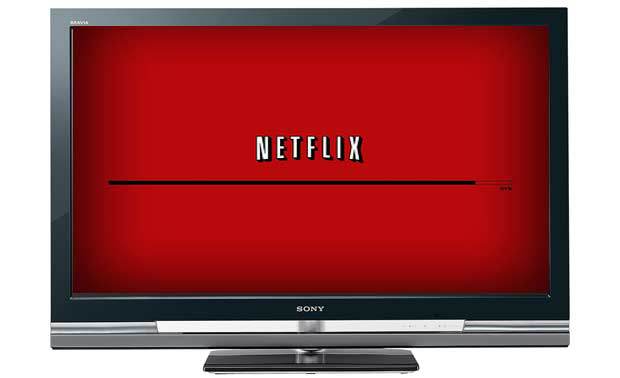The pop culture TV news story of 2013 is shaping up to be Netflix’s original content, that in less than a year’s time have become critical and audience hits.
As if it wasn’t already clear, the future of TV is online.
But for Netflix, getting into the content creation business is bad news for them.
It’s an end to their low risk, low margin business model.
Life used to be perfect for Netflix.
They had the unique infrastructure to get movies and TV shows into people’s homes via the internet, and the content they were essentially reselling was in high demand — of course people would pay a modest monthly fee to watch hit Hollywood movies.
For generations content producers had no choice but to go through middlemen like Netflix (e.g. movie theaters, cable channels, retailers, etc.) for both legal reasons (United States v. Paramount Pictures, Inc.), and the simple fact that it wasn’t cost effective to build out their own distribution infrastructure. Had the studios won in US v. Paramount it seems questionable if they would want to continue with having to deal with the capital expense of financing the construction of new movie theaters. Consider that at the time of the case there were fewer than 20,000 movie screens nationwide; today there are almost 40,000. It’s a lot easier to pass off the cost of building and running movie theaters while still reaping most of the ticket sales.
The cost of streaming movies on the internet is a lot less than building movie theaters and bog box retailers (that sell home videos), and then staffing them in order to get content out to people. Broadly speaking, most of the infrastructure for streaming movies has already been created and is maintained by third parties: the U.S. Government and telecommunications companies. All you need to get into streaming movie business is a data warehouse, which is why Netflix’s competition was able to ramp up overnight, and why studios will eventually just get into the streaming game themselves, leaving Netflix and others with no content.
Before discussing how studios will eventually stream directly to home viewers, just consider how fierce the competition has become for licensing existing content. Amazon lost money in the last quartet despite a rise in revenue because it is spending so much on licensing content to stream. So it’s not surprising that both Amazon and Netflix are looking to save money on licensing fees by producing their own content. But this is hardly a panacea.
It’s simply a lot easier to resell someone else’s content than produce your own.
First, there is the cost. 26 episodes of House of Cards cost a reported $100 million.
That might sound like a lot, but some of HBO’s shows that run less than 13 episodes per season cost over $60 million per season, such as True Blood and Game of Thrones. And the competition for content has gotten so extreme that the $18 million HBO spent on the Boardwalk Empire pilot is the new normal.
With those huge budgets comes a lot of risk — if nobody likes your originally produced show, you’re out a lot of money. So up until a certain price point, licensing existing content is a better deal because there is a lot less risk — Iron Man 3, Despicable Me 2, Man of Steel, etc. have all already made a ton of money, so there is no question that people want that content.
At some point studios are just going to stop licensing their content.
Not only will its value eventually be so high that no one wants to pay for it, but the cost to stream will drop so low that there is no point going through a middleman rather than directly providing it over the internet to customers. Studios are going to say to us, “if you want to stream our movies and TV shows, then you’re going to have to pay us a subscription fee.”
Admittedly some studios will have an easier time than others doing this. Disney, for example, would probably have the easiest because of its huge back catalogue of children’s movies and TV shows — what parent wouldn’t want to pay $8 a month to be able to stream all of it for their kids? And making the cost of streaming movies higher than it currently is might push consumers back into buying DVDs and Blu-rays, which is where the real money is for studios — they’d welcome that outcome.
So to return to Netflix, it is producing originally programming because it has no choice but to. The cost of licensing content is going up, and eventually that content might not even be available.
This leaves Netflix in an uncertain place.
Its current pricing model of $7.99/month is based on streaming licensed content. As their spending on original programming grows, will they have to raise prices? And when the amount of licensed content begins to shrink, how many original shows will they have to offer in order for that monthly subscription fee to be considered a good value?















































































































1 Comment